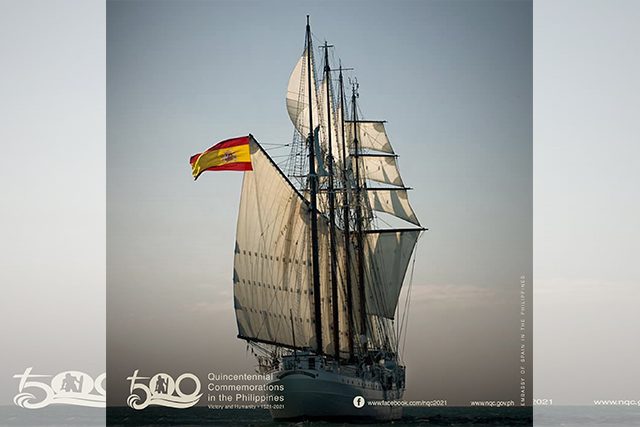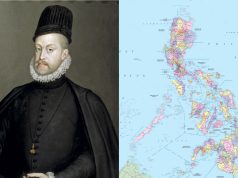
The Philippines is set to mark the quincentennial or the 500th anniversary of the world’s first circumnavigation on March 16.
“On the same day, the National Historical Commission of the Philippines will unveil the first of the 34 historical markers marking the country’s part in this achievement of humankind and science: the Suluan Quincentennial Marker in Suluan Island, Guiuan, Eastern Samar,” the National Quincentennial Committee said.
The National Quincentennial Committee of the Philippines is a state-run organization tasked to make preparations for the historical occasion.
The activities will coincide with the arrival of the Spanish Navy Training Ship Juan Sebastian Elcano or “Elcano.”
The ship, built in 1928, is expected to retrace the route of navigators Juan Sebastian Elcano, the ship’s namesake, and Ferdinand Magellan when they went on the expedition 500 years ago.
March 16 is also the same date when Magellan and his crew first landed on Homonhon Island in Eastern Samar province in 1521.
It is also reportedly the start of the more than 300-year colonization of Spain to the Philippines.
The Spanish Embassy in Manila explained in a statement that the global voyage made circumnavigating Earth possible, citing the country’s significance to it.
“The journey was a historical leap forward and a technical challenge for that time. Initially, five ships and 238 men departed Spain as part of the expedition and only 18 men and one ship made it back three years later,” it said.
Despite such prominence, Filipinos have mixed reactions to the commemoration.
Some social media users opposed the voyage and perceived that it is a “glorification or forgetfulness of colonization.”
“No thank you. We suffered 3 centuries from you, I think that’s enough. We do not want to commemorate how our ancestors suffered under your regime,” one user said.
“Subtle, if not shameless glorification of colonization. ‘Science’ was an excuse or merely incidental and not even “trade”. It was simply a mad scramble for resources by Imperial powers resulting to plunder, slavery, mass murder and genocide not just of our people but those in North and South America, Southeast Asia, and Africa,” another said.
Others quipped that there should also be a rematch between Magellan and Lapu-Lapu, the first national hero who killed him.
The Portuguese navigator was killed during the Battle of Mactan on April 27, 1521.
A few Filipinos countered and explained that the ship’s visit was not about colonization, rather to remember the first Catholic Mass in the country, which was celebrated on March 31, 1521 in Limasawa, Leyte.
“To those negative comments, just so you know, this is to celebrate the FIRST MASS in the Philippines. If you’re a catholic, please keep quiet and if you’re not, please respect. This is not about how the Spaniards enslaved us but this is about religion. This is to celebrate the 500 years since the first mass in the Philippines. Please know your facts and your history,” one user said.
In 2018, the National Historical Commisssion of the Philippines was prompted to reopen the investigation into the contested first recorded Easter Mass in the Philippines, March 31, 1521.
“The requests were also made in time for the 500th anniversary of the arrival of Christian faith in the country in 2021,” a report of Philippine News Agency read.
After almost two years of deliberation, a panel of historians reaffirmed the previous findings on the historic event.
In October 2020, the Catholic Bishops’ Conference of the Philippines supported the findings of the investigating panel affirming Limasawa Island as the site of the first Easter Sunday Mass in the country.
Spanish navigator Miguel Lopez de Legaspi formally introduced Christianity to native Filipinos and baptized them in 1565.








